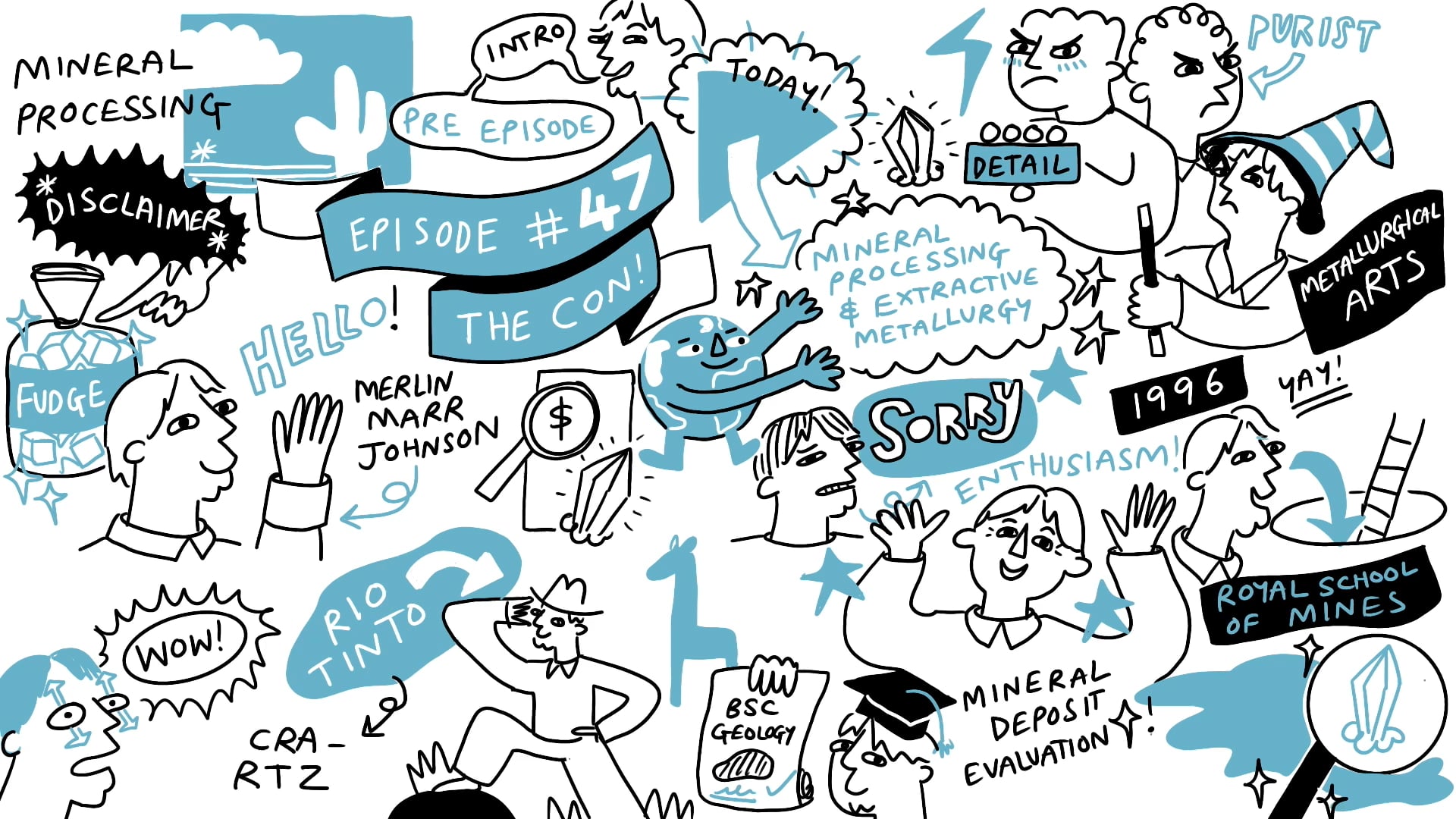Strategy: Management, Exploration, Discoveries & Culture

More episodes
Transcript
A good management team will outperform a bad management team over time. So even though we know that companies go up and down with metal price moves and there'll be some out-performance due to the metal prices, the cycle changes, that's pretty generic. It's not unique to one company, but the management team is unique to a company. So some companies will go up because the gold price increases. And within that field, good management will make sure that that company outperforms its peers. And of course, over time that gets priced in. There's a reason why Franco Nevada is an expensive company to invest in, and that is because management has delivered returns for shareholders over decades. And the same is true for other sectors as well. So the multiples that a good management team attracts are higher than the multiples of a less good management team. It's pretty obvious. That's one thing to look at in your strategy for investing in as a company. It's a quality management team.
You've also got to understand what you're really looking for. Are you looking for production or are you looking for exploration? And there's a reason why you might want exploration in your portfolio. Yes, you need to pay for some expertly run companies, but if you want to make a lot of money on something which is a little bit more exciting, it's the exploration sector which can deliver. In short, one fund manager told me that he likes the exploration sector because it puts in the sex and the violence into his portfolio. Or another way, it’s the sex, drugs and rock and roll all wrapped up together within your investment portfolio because discovery of a mineral asset is an outlier activity. It's something that can't be predicted. It creates true capital value. It's a specific event that can change the fortunes of a company. It's a bottom up disruptor. You can find a company making asset through exploration.
So that leads us on to discoveries. And as you know, the kind of the nutty end of the exploration business is actually making discoveries. It's not going out and exploring and spending lots of time looking at mountain ranges. It's actually making commercially viable discoveries. And it's really hard to do that in a production company. It's hard to make a company-making discovery in a larger company. It's very rare. And when it happens, when a true discovery is made, it's fantastic. If you're in a really big company, for example, making one discovery won't have an impact on the overall value of the company. It might feed through in the longer term, such as an Escondida-scale asset. These are multibillion dollar, multi-decade huge copper porphyry deposits that do, over time, change the fortunes of even BHP or Rio Tinto. However, in essence, a discovery is unlikely to change the short term returns in the share price of a very big company. Even for mid-tier companies, it's quite hard to do. You know, you've got production across 3 or 4 assets, and you make one new discovery. Of course, when it does happen, it's very exciting. As an example, Fosterville and Kirkland Lake - that was a transformational discovery. When it happens, great, but it's incredibly rare.
You do have to keep an eye out for those kinds of company-making discoveries, because of course, a bigger company is larger, it's safer. It's got the management team, it's got the internal infrastructure to make it a lower risk company. But typically the returns that come from discovery are only offered by the weaker, smaller, high risk companies. So it's always worth checking out the strategy of the company to see how they're performing in their discovery record.
You don't want to be with a serial explorer who's just funding a lifestyle for a CEO who likes mountaineering. You want to be with the companies that are actually going to make those discoveries.
So it comes to the culture. In a situation where you're dealing with a development company or a smaller mining company, there's a huge psychological difference between the culture of discovery and the culture of mining, and this is often missed by retail investors. In essence, this is a highly significant moment. Mining is difficult and potentially dangerous. You're buying big equipment, your trucks, crush, plants. It's capital intensive and it actually makes money if it's done properly. The people who end up running mining companies are good managers. They are meticulous, methodical and focused on making money. A good mining team is focused on making money. The exploration division of that company is often seen as a loss leader division where these stupid, maverick bearded geologists take good money and pour it into the ground, drill holes and there's no money coming out of the ground.
The culture of exploration and resource testing, and the risks associated with geology are completely different to the cultures of a mining company, and therefore, it's very difficult for a small mining company to go through the painful process of giving birth to a new mine, having perhaps built one, and is trying to build a second or third mine. That culture of an exploration team is very rare, and it's a key distinction that's imperative to understand. It's essential to really look at your management team and see if they truly understand what they're trying to do, and how they'll be creating money. Is it through operating an asset or is it through discovery?









































.jpg)
.jpg)
.jpg)
.jpg)















